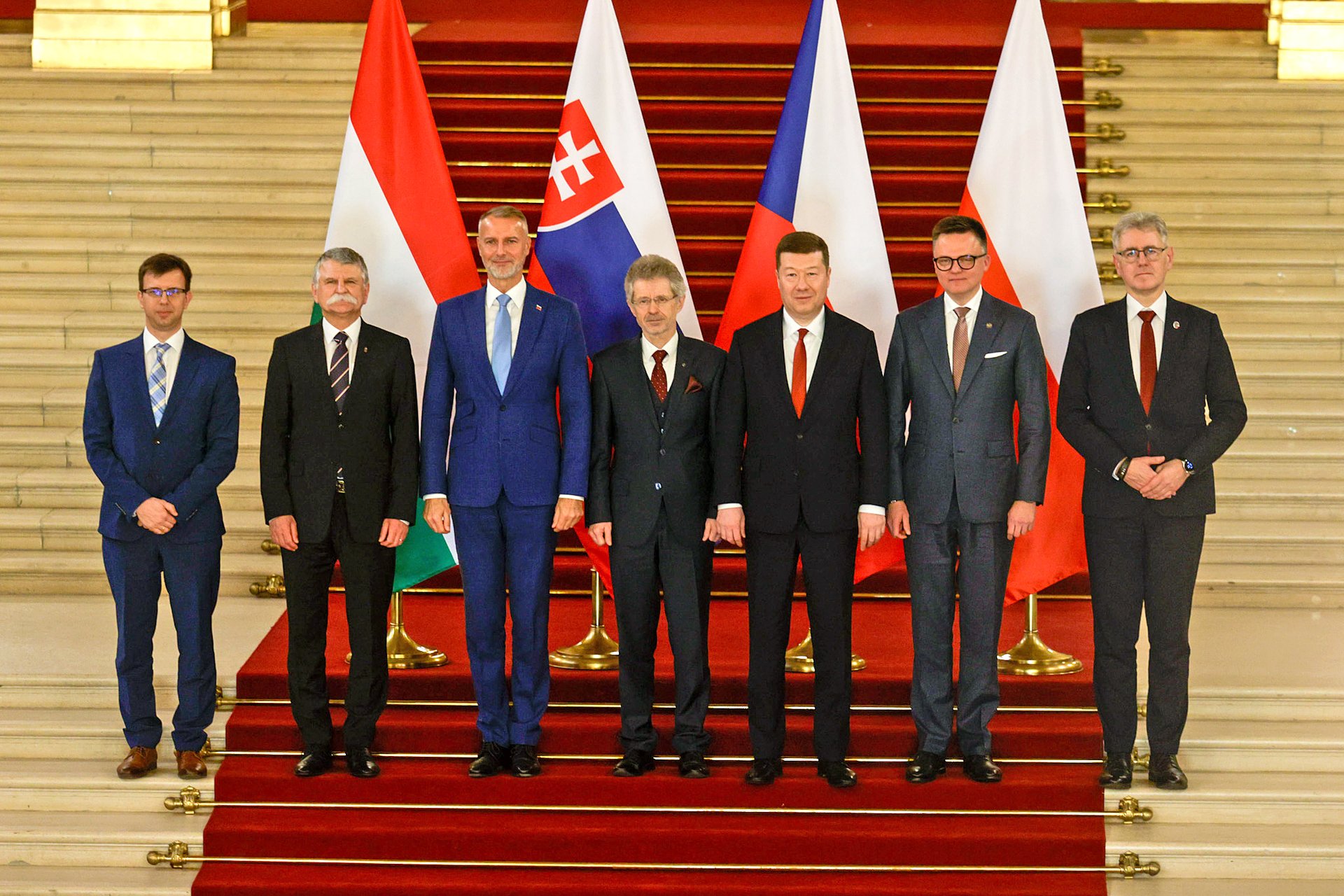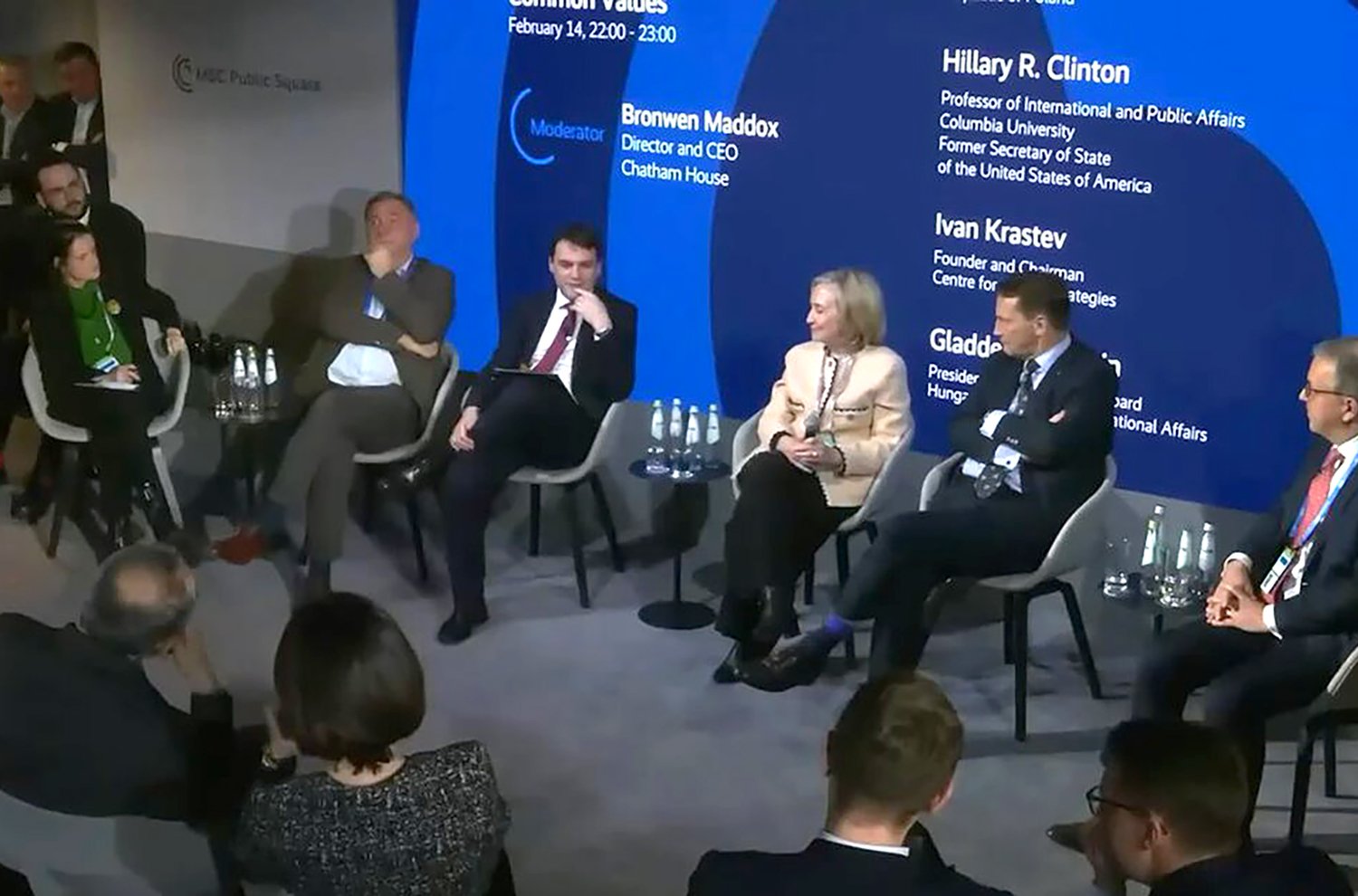Who wants to leave the Union
It sounds like an entertaining trivia question: What do Great Britain, Denmark, Poland, and the Czech Republic have in common? But the answer is not that amusing. Analysts and politicians of other European countries expect that this foursome will dislodge European Union's new foundational stone, its first constitution.

It sounds like an entertaining trivia question: What do Great Britain, Denmark, Poland, and the Czech Republic have in common? But the answer is not that amusing. Analysts and politicians of other European countries expect that this foursome will dislodge European Union's new foundational stone, its first constitution. No one knows exactly what will follow. In the event that fewer than five countries veto the constitution so laboriously negotiated, they face a real threat of a thus-far unheard reply: expulsion from EU. „If one small country turns down the constitution, it will become a pariah. It will face economic and political sanctions,“ says Jan Zahradil, shadow minister of foreign affairs for the Civic Democratic Party. Realizing this full well, his party's recent congress nonetheless came up with a clear recommendation for the referendum: Czechs should say No.
How will Blair handle this


Tensions are mounting in anticipation of the British vote, as the outcome may influence decisions in other „Euroskeptic“ countries. „Acceptance of the constitutional agreement is profoundly in the British interest. It will, for the first time, demarcate clearly a jurisdictional divide between Brussels, and the national governments. For the first time, it will become impossible to pass a European law without national parliaments - decision making will become more democratic,“ Denis MacShane, British Minister for Europe, told Respekt during his Prague visit last November. As always, the British Isles' Euroskeptic press and all of the political right are against him. Even The Economist, liberal in outlook, has recommended a No vote: the constitution is said to be less complex and easier to understand than previous agreements, but should protect civil liberties better. „The isolationist anti-Europeans who would like to return Britain back to the thirties, the time when, for example, Czechoslovakia was looked upon as a country we had nothing in common with,“ are Minister MacShane's main worry. According to the latest survey on the constitutional issue by Eurobarometer, British public opinion is split exactly down the middle. Prime Minister Tony Blair has postponed the vote until spring 2006. „He will have to convince the public that it is the very membership in the Union that is at stake“, opines a British diplomat in Prague.
It will not be an empty threat. If only one of the twenty-five member states vetoes it, the European constitution becomes null and void. However, there is a clause stipulating that, if the number of those opposed does not exceed five, the remaining members will enter into negotiations with them. „And those of us who approved this clause at the constitutional convention know the meaning of the wording. The subject under negotiation will be exit from EU,“ says Josef Zieleniec, MEP for the Czech Republic. Historically, no member has ever been expelled. When two small countries (Denmark and Ireland) turned down a key agreement, they eventually gave in to pressure from the others to vote again, coming up with a positive answer the second time around. „Of course, the Danes did extract for themselves some exemptions from the Maastricht treaty before voting in the second referendum. In the case of the European constitution, that option is not available,“ points out Dana Spintanova, Editor, The European Voice, a Brussels weekly. And if the veto countries keep on dragging their feet? „Then, most likely, they will be invited to apply for an associate status, as is the case with Norway or Island,“ reckons Spintanova. „They will continue as members of the European common market subject to its rules and regulations, but will not participate in developing those rules and making decisions.“
Silence of an insider
For the Czechs, winding up among the four Euroskeptic nations is somewhat of a surprise. After all, 77% of voters approved entry to EU last year, and supporters of the constitution clearly outnumber its opponents (63:18), according to Eurobarometer's findings. To a varying degree, the constitution is supported by majority of the media. But Brussels commentators, such as Dana Spintanova, are above all familiar with the position of the Civic Democratic Party (CDP), and Vaclav Klaus' statement: „I am not critical, I am 100% opposed.“ CDP, a leading Czech voice in the European Parliament, has formed a parliamentary club with members of the People's Party and Zieleniec' Independents. The party's unanimous disapproval was reiterated at its congress last December. Even those politicians considered moderately pro-European, such as Petr Necas, first vice president, demanded a loud No. " The European constitution is redundant and nothing good will result from it, only more egoistic national attitudes and more friction. If it is rejected, the Union will continue to function according to the existing agreements," says Necas without hesitation, downplaying the threat of expulsion as „hypothetical, and fear-mongering“. According to Necas, an answer from the British is all that is needed: "If they say No, the constitution has been repealed, and another referendum is nothing but a waste of money.
MEPs Jan Zahradil and Hynek Fajmon offer a more detailed analysis, summed up in a flyer for the benefit of party members. In their view, the constitution is overly complicated, was arrived at undemocratically, postulates a federal structure (EU offices of president and minister of foreign affairs), and, most importantly, creates a power-sharing disadvantage: Germany's power gain against Czech Republic's loss in the EU Council's system of checks and balances between big and small countries. „None of the CDP's arguments can survive a face-to-face confrontation with a determined opponent. Indeed, these gentlemen become very tame every time they step out of the country,“ says confidently Josef Zieleniec, who has announced his intention to unify the Czech pro-European right under his leadership. „The European Constitution, based on a treaty, is a great victory for us, and for all small nations, over a history in which strength alone has ruled. CDP keeps counting votes to make certain we have enough to form an obstructionist minority, as if obstructing, instead of promoting, were our mission.“ Of course, Zieleniec has not entered into a face-to-face debate as yet. In contradistinction to other CDP politicians, he does not even publish articles (alleging that he, personally, has been „blacklisted“ by the media).
They won't take them on
No one in the CDP understands the dangers of a No vote better than its MEPs. „A campaign, bordering on harassment, is under way in the European Parliament targeting opponents of the constitution,“ relates Miroslav Ouzky, vice president of the continental assembly. „In spite of this, I am strongly against it, because the constitution downgrades the weight of our votes. Pavel Telicka argues that a vote of this kind is seldom taken, but I stand for a principle.“ Even an earnest appeal by Hans-Gert Pottering, German Christian democrat and chairman of European People's Party, that the CDP should support the constitution as a step toward a more vigorous Europe, has failed to change his mind. „They are getting more votes. If I were a German, I would also be for it,“ says Ouzky. Expecting the Czechs to say yes, Ouzky has no plan how to deal with possible expulsion from the Union: „Based on my encounters with the voters, I estimate that 60–70% will vote for the constitution.“
The CDP politician best informed in European affairs, shadow minister of external affairs Jan Zahradil, is also the most pessimistic about future alternatives: „Both Chirac and Schroder have staked their jobs on the constitution and will stop at nothing to ensure it is adopted. Our appeal may seem to carry a risk for the country, but it is necessary that we examine the boundaries of European democracy.“ For what purpose? „To learn about the methods the European Union's apparatus is capable of resorting to.“ But Jan Zahradil has also made it known more than once that he first wants to „wait strategically“ for Britain: „Because France and Germany will not dare to intimidate them, and will negotiate with them.“
Pokud jste v článku našli chybu, napište nám prosím na [email protected].










